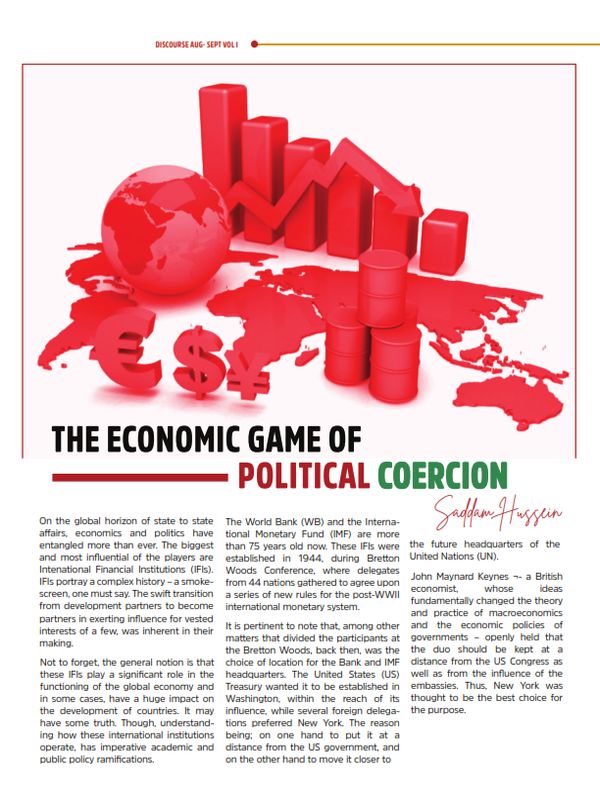The Economic Game Of Political Coercion By Saddam Hussein (Article)
On the global horizon of state to state affairs, economics and politics have entangled more than ever. The biggest and most influential of the players are Intenational Financial Institutions (IFIs). IFIs portray a complex history – a smokescreen, one must say. The swiﬞft transition from development partners to become partners in exerting influence for vested interests of a few, was inherent in their making.
Not to forget, the general notion is that these IFIs play a significant role in the functioning of the global economy and in some cases, have a huge impact on the development of countries. It may have some truth. Though, understand- ing how these international institutions operate, has imperative academic and public policy ramifications.
The World Bank (WB) and the International Monetary Fund (IMF) are more than 75 years old now. These IFIs were established in 1944, during Breמּon Woods Conference, where delegates from 44 nations gathered to agree upon a series of new rules for the post-WWII international monetary system.
It is pertinent to note that, among other maמּers that divided the participants at the Breמּon Woods, back then, was the choice of location for the Bank and IMF headquarters. The United States (US) Treasury wanted it to be established in Washington, within the reach of its influence, while several foreign delegations preferred New York. The reason being; on one hand to put it at a distance from the US government, and on the other hand to move it closer to Saddam Hussein the future headquarters of the United Nations (UN).




